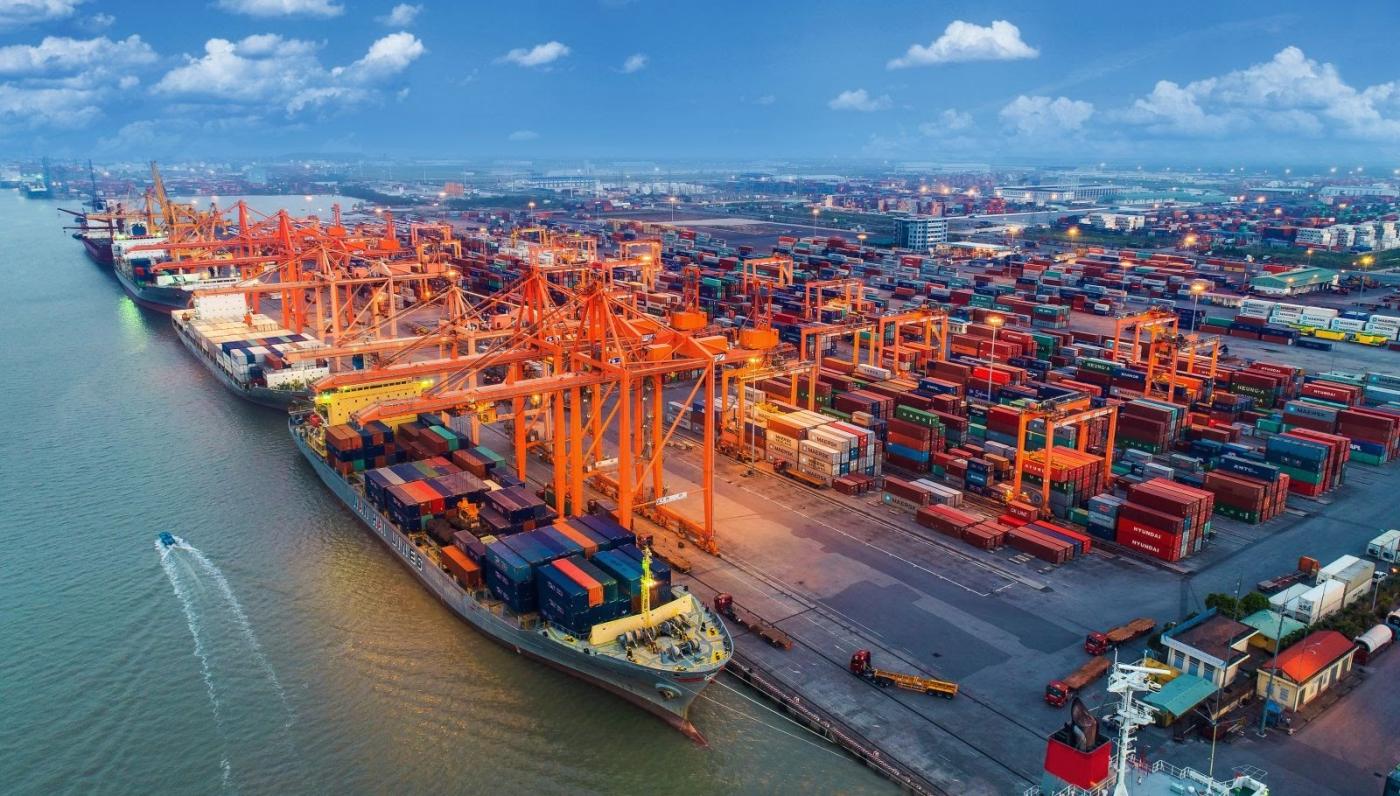Ahlers Logistics pivots towards Southeast Asia, first stop Vietnam. Interview of Jeroen De Ryck and Elisabeth Leysen
In a strategic move to expand its geographical presence, Ahlers Logistics has set its sights on Southeast Asia, establishing a physical presence in Vietnam, which it regards as a gateway to the whole region.
Ahlers was well aware of the China-plus-one strategy developing in the market and among its long-term customers. The current market landscape has urged companies across the supply chain to diversify their operations and have a plan B in store.
This meant that Ahlers’ long-term customers have started shifting some of their production lines away from China, and into countries such as Vietnam, making the opening of an office in the country a natural step, according to both Jeroen De Ryck, Director Projects & Machinery division at Ahlers, and Elisabeth Leysen, Regional Development Manager Vietnam.
As De Ryck explains, Ahlers decided to establish a physical presence in Vietnam’s Ho Chi Minh City, and the company has brought Elisabeth Leysen on board to head the local office.
Speaking to Project Cargo Journal, Leysen said, “The Vietnamese market, with an expected GDP growth of 6% in 2024, can be considered as one of the most attractive and growing markets in SEA. Vietnam enjoys a strategically advantageous geographical location, serving as a gateway for international maritime trade.”
Ahlers aims to bring its expertise in providing tailor-made solutions and complete project management in complex markets to Vietnam. On top of it, Ahlers plans to expand its services portfolio beyond the segments it is well renowned for.
“Vietnam opens up opportunities for Ahlers to serve not only our traditional clients within sectors such as mining, construction, or metallurgy but also enables us to expand our services to emerging sectors such as renewable energy, where we still see great potential in showcasing our capabilities,” stated De Ryck.
Decision flexibility
While the future focus may be on a wider Southeast Asian market, Ahlers is looking to drop an anchor in the burgeoning Vietnam. The company has a flexible team on the ground capable of aiding its clients, who are mostly Western customers, with local knowledge, while also leveraging the global reach of the company.
“Irrespective of where the decision is made, we have the flexibility to act and help our customers execute their projects,” Leysen said.
Adding to it, Jeroen De Ryck, stressed that the company has a strong operational team able to develop a solution for its clients to ship cargo worldwide and handle both import and export to and from Vietnam. Ahlers is leveraging close cooperation with its partner in Vietnam and their understanding of the local market while bringing its experience in providing solutions to international customers who are becoming more involved in the Vietnamese market, and the local purchasing decisions.

Gateway
Once it firmly establishes its position in Vietnam, Ahlers is looking to expand its operations further across the region. “We don’t intend to stop there, as lessons learned in Vietnam can be applied elsewhere, why not,” adds De Ryck.
Ahlers is looking to use its experience in complex markets and expand in Southeast Asia, following its clients in also in industries like consumer goods and chemicals. According to Leysen, the Vietnamese blueprint could be applied to growing markets such as Indonesia and Thailand.

Sustainability
As Leysen points out, Vietnam is not behind any of the Southeast Asian countries in terms of the green development trend, with Vietnam jumping on the sustainability train and Ahlers seeing an opportunity in it.
The strong economic growth, and increase in consumption that goes along with it, are backed by government initiatives, as the country has signed several free trade agreements with European countries, making the market even more attractive.
Ahlers can leverage its experience to support its clients in developing sustainability objectives via a customised reporting tool and proactive network optimisation. Ahlers in-house CO2 intelligence allows customers to gain real-time insights into their supply chain and to streamline routes in function of their expectations.
The company provides data from TMS, updating daily on cargo, costs, and carbon emissions for sustainable management. Furthermore, the calculations also allow its clients to streamline routes and recommend alternative transportation modes, cutting CO2 emissions.
The challenges
Vietnam is a burgeoning market, however, the growth is uncovering issues with processes, or lack thereof. De Ryck says, “For now, it is an ambiguous situation, where it appears to be handled more on gut feeling, rather than a well-established set of principles. In terms of logistics, the Customs system is very complex and not transparent. It can be ambiguous and open to interpretation and may be completely different from one project to another, despite the similarities in these projects.”
De Ryck called for more transparency but has also said that the company has the task of discussing these matters with clients locally. Furthermore, Ahlers is closely collaborating with local business associations like BeluxCham and EuroCham, to bring European know-how and standards to growing markets.
“There is clearly the willingness to grow,” adds Leysen. “There is the ambition to cooperate with the international community, but due to aforementioned complexities it is not always easy.” This is where Ahlers has seen its opportunity and is helping its international clients navigate these markets.
Furthermore, as De Ryck notes, port infrastructure and inland waterways currently pose an additional level of complexity and need accelerated development. He added that Ahlers’ team in Vietnam and across all other offices is set on continuing to provide its clients with tailor-made solutions they are used to. And, while the office has started its activities already, the official opening ceremony will be held in Ho Chi Minh City on May 29, 2024.
